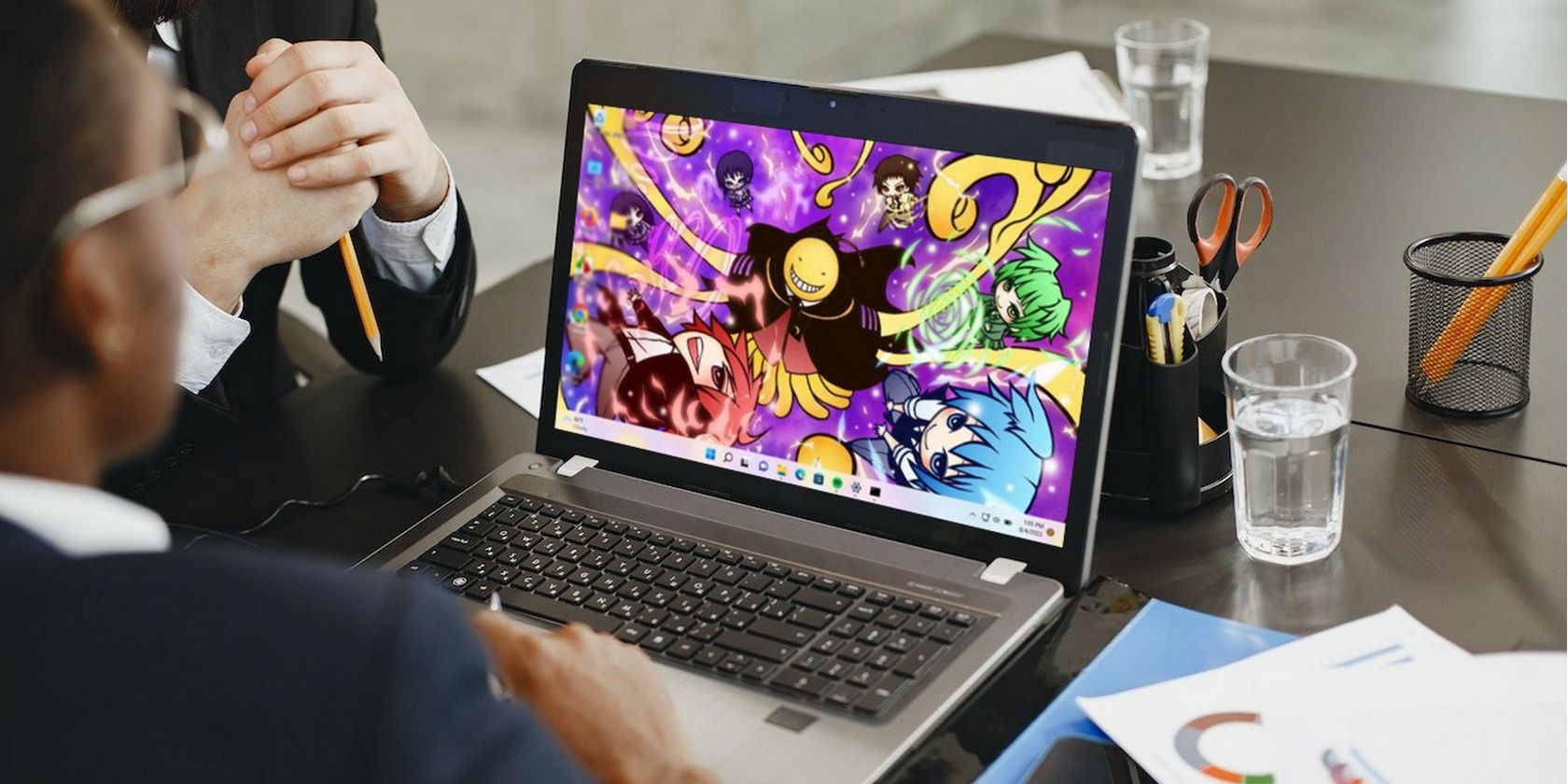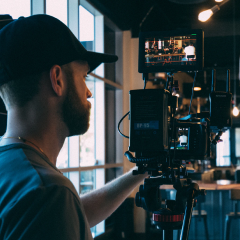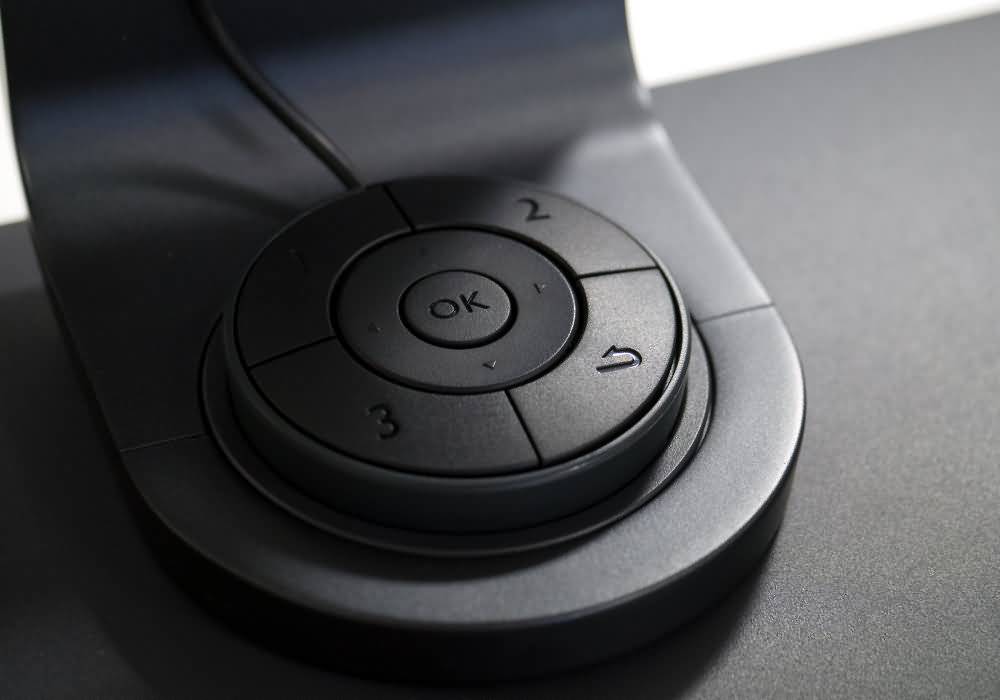
"In 2024, Spotlight on BenQ SW320’s Eye-Catching 4K Display"

Spotlight on BenQ SW320’s Eye-Catching 4K Display
BenQ SW320 4K 31.5-inch Monitor Review

Max Wales
Mar 27, 2024• Proven solutions
Professional photographers in search of a wide color gamut 4k monitor will find few as effective and as competitively priced as the BenQ SW320. It delivers brilliantly on some key features visual professionals want including an impressive 31.5-inch display, an IPS LCD, HDR 10 support, high-level color accuracy and depth, and the latest in DisplayPort technology.
The BenQ SW320 monitor started making waves long before it hit the market. That’s because it proposed to offer premium visual rendering functionality for a quarter of the price of its nearest high-end competitor. At roughly $1500, the SW320 is a steal for visual professionals who are keen to improve their workflow while remaining on the cutting edge of their practice.
Its 3840 x 2160px 4K display does require a powerful graphics processor to reach peak performance. The good news is that the cost of high-level graphic processing is on a downward trajectory. With a top performing monitor like the BenQ SW320, professional photographers, videographers and graphic artists can work with colors and details that are on par with nature’s artistry and their lofty creative aspirations.
BenQ SW320 4K Monitor Pros and Cons
This monitor has many positives to tally. The most notable has to be its state-of-the-art input port technologies. It sports an HDMI 2.0 port, a DisplayPort 1.4 and a mini DisplayPort 1.4. These input sockets have the necessary bandwidth to support its 4k UHD screen, its high-fidelity color renditions and its HDR functionality.
Also worthy of note is its effective stand which lets users adjust the positioning of the screen for best viewing results. On its stand, the BenQ SW320 monitor can make a 20-degree upward tilt, a 45-degree right or left swivel, and a 90-degree pivot from landscape to portrait mode.
The swivel feature does fall short of what professional studio designers may require. A photographer who needs to swivel the monitor to show a colleague her work may find a 45-degree swivel insufficient.
Another significant downside has to do with uniformity across its screen. According to some testers, the SW320 shows noticeable color tints towards the edges when set to display all-white. This is perceptible even when its Brightness Uniformity feature is enabled. While uniformity is something most monitors fail to achieve 100%, it’s not out of place to expect that a monitor as powerful and as groundbreaking as the BenQ SW320 would succeed where others have not.
Hardware Design
1.Design Style
The design of the BenQ SW320 is ideal for Professional photographers. It has a minimal black finish with an optimal bezel size and a matte screen surface that minimizes harsh glare.
The SW320 also has the right support apparatus. As mentioned above, it ships with a very efficient stand that provides ample support for its relatively heavy bulk. It is also a VESA compatible monitor. This means that it has standardized slots designed to let it be mounted on a wall.

The most novel design feature of the SW320 is the remote-control Puck which stows seamlessly in a round slot located at the base of its stand. The puck connects to the back of the monitor and is a great convenience utility. It has the right size and bulk to fit effortlessly into any visual professional’s workflow while providing quick access to OSD menus.
With so much going for it, the BenQ SW320 has yet another functional tool many pros are sure to appreciate. It comes with a Monitor Shading Hood that blocks stray light from altering the color accuracy of images on its screen.
2. Ports and Connectivity

As discussed earlier, the SW320 is fitted with the latest input port technologies. Its HDMI 2.O port, Display port 1.4 and mini DisplayPort 1.4 are located at the lower back side of the monitor. It also has a 3.5mm headphone jack and an AC power cable slot also located at its lower back side. The HDMI 2.0 port enables HDR support while the DisplayPort 1.4 enables full 10-bit color displays. To access these ports conveniently, users need only swivel the monitor slightly in the clockwise direction until the input panel is plainly in view.
In addition to having the right input slots to support its high-level visual performance, the SW320 also has 2 USB 3.0 slots and one SD Card slot located on its left side. BenQ takes the guesswork out of using these input slots correctly by supplying the right cables. Furthermore, there’s a cable management hole built into its stand that makes keeping a tidy set up very easy.
Features and Performance
1. Color Performance
High-level color performance is a major strong suit of the BenQ SW320. When it comes to the number of colors it can render, this monitor packs a powerful punch. It can display a staggering 1.07 billion colors in multiple color gamuts. It is also Technicolor certified for both color accuracy and consistency.
It supports 10-bit color display and a 14-bit color LUT, and can render 99% of the sRGB color gamut as well as 99% of the AdobeRGB color gamut. Its coverage of the AdobeRGB gamut is particularly significant because AdobeRGB has an extended blue and green gamut compared to sRGB. As a result, AdobeRGB is better at rendering colors from nature.
AdobeRGB and sRGB aside, this monitor also has additional built-in color modes such as Black and White, DCI-P3, HDR and CAD/CAM.
What’s really impressive is how easy it is to compare images in 2 color modes on the SW320. With Picture-in-Picture and Picture-by-Picture settings, a professional photographer can compare images in different color modes side-by-side. Enabling the PIP/PBP feature through the HotKey Puck or joystick activates BenQ’s proprietary GamutDuo. GamutDuo is the feature which supports this on-screen color-mode comparison feature.
The SW320’s HDR support is another remarkable color performance feature. High Dynamic Rate support makes it possible to render more colors in the black and white range. It’s an all-important feature of High-Definition TVs. With this feature, the SW320 can achieve picture brilliance on par with HD-TV sets and other screens designed for entertainment purposes. This level of image quality enables professionals to produce top-quality work while also advancing the realm of possibility for their craft.
2. Calibration
Though most powerful monitors have what it takes to render colors accurately, how well they achieve this level of performance will depend on how well and how often they’re calibrated. The same is true for the SW320 which supports external hardware calibration. BenQ has a proprietary color calibration software known as Palette Master Element. This software works well with a number of external calibration devices such as X-Rite, Spyder and Display Pro. Using the software and hardware together, the SW320 can be set to perform at optimal color fidelity and depth.
Before calibrating any BenQ SW320 straight out of the box, it’s a good idea to go over the individual performance report that ships with it. Each report is unique. It provides a reliable baseline for understanding and assessing an SW320’s performance over time. Beyond its utility, these reports are also a good indication of BenQ’s commitment to quality and excellence.
3. Ease of Use
One could argue that the effectiveness of a device’s assembly manual is a good measure of how well it is designed. In this regard, the BenQ SW320 scores another homerun. Its illustrated assembly manual is easy to follow. This allows for a stress-free set up experience that’s bound to be reassuring to anyone who’s spent $1500 on a monitor.
In the assembly manual, each part is labelled and arrows are used effectively to show how parts fit together. This clear sequencing means that most users can assemble their SW320s themselves. Granted its assembly manual makes setting up easy, there’s no shame in asking for help and doing some research. The SW320’s Monitor Shading Hood in particular, may prove a bit more difficult to assemble than the rest of the unit.
4. Highlighted Features
Getting to know the strengths of the BenQ SW320 monitor is much like peeling back the layers of an onion. Many of its coolest features are nested within others and may not be apparent unless discussed. One such strength is the fact that due to its IPS LCD panel, the SW320 can display colors consistently at up to 178 degrees. This means that color depth and accuracy remain unchanged when this monitor is viewed from wide horizontally and vertically angles. This is certainly great for multi-viewer situations and in a way, compensates for the somewhat limited swivel angle of the SW320.
The Delta-E(ΔE) figures for this monitor are also very impressive and provide a sense of the high-level color fidelity it delivers consistently. Delta-E represents the difference between the color requested and the actual color rendered by the monitor. In general, figures under 2.0 are considered very good. According to some testers, the SW320 consistently scores a Delta-E that’s less than 1.2. This means that in many color modes, this monitor renders colors that are very true to what’s expected.
One last feature worth highlighting is the HotKey Puck’s custom option. It takes quick Display Menu access to a whole new level. While it is set by default to lead to standard menu options like Display, Color Adjustment and PIP/PBP, the buttons on the Puck can actually be set to any functionality depending on what a user prefers. This includes custom color calibrations and any other custom settings a user may need in her workflow.
5.Responsiveness
As far as responsiveness goes, the SW320 is an okay performer. Its IPN LCD panel has a best response rate of 5ms. While this is great for rendering HD pictures and HD Video editing, it makes this monitor unsuited for quick-action gaming. Gaming monitors tend to have TN LCD panels precisely because they afford an excellent 1ms response rate that ensures screen-tearing and stuttering are minimized.
With its 5ms response rate, the SW320 may experience noticeable image rendering failures if used for fast-action gaming. For the most part however, this monitor performs exceedingly well for professional image processing and alright for minimal gaming use. It is worth emphasizing that the BenQ SW320 monitor is specifically designed to be used by visual design professionals. In light of this, its 5ms response rate is more than sufficient.
Conclusion
We can all agree that the BenQ SW320 has an impressive roll of positives. Assessed by any standard, it performs superbly and delivers many pleasant surprises to boot.
With this monitor, users need not worry about being hampered by outdated hardware any time soon. The BenQ SW320 comes with the latest in display and input port technologies. Far from being left behind, the BenQ may up the demand for PCs that have powerful GPUs and the latest output ports.
For professional photographers, videographers and Graphic Designers, the SW320 is a dream. At an affordable price bracket of $1450 - $1500, this monitor puts state-of-the-art color processing features within reach. And with proprietary features like GamutDuo and Palette Master Element, Visual Professionals can optimize their workflow significantly.

Max Wales
Max Wales is a writer and a lover of all things video.
Follow @Max Wales
Also read:
- [New] 2024 Approved Enhancing Visual Impact Through Typeface Integration
- [New] 2024 Approved Olympic Ice Rush Speed Skaters' Best From Games
- [New] Filmora's Prime Selective Screen Change List
- [New] Taking the First Steps Towards VR Technology Mobile-Based Headsets Vs. Cabled Gear
- [Updated] 2024 Approved Full Picture The Essence of Google Podcasts App
- [Updated] Affordable, Reliable A List of the Best Free Mobile Streamers
- [Updated] Discover How To Get High-Quality Images at Zero Cost for 2024
- [Updated] Easy Ways to Record Google Voice Calls for 2024
- [Updated] Instagram Illuminations Mastering Three Highlight Techniques for 2024
- 2024 Approved A Visual Extravaganza Detailed Examination of LG UD88-UHD TV
- Enhance Visibility Essential YouTube SEO Strategies Revealed
- How to Verify Rights Before Sharing on TikTok Platforms for 2024
- In 2024, JokesInFrame Instant Memes & More
- In 2024, Pixels to Percussion Composing Visuals in Video
- Mastering Digital Interaction on Popular Platforms Like Facebook, Twitter, Instagram, Youtube
- Reestablish Links: Essential Steps to Solve Printer Woes
- Ultimate Drone Cinematography Team The Best 10 for 2024
- Title: In 2024, Spotlight on BenQ SW320’s Eye-Catching 4K Display
- Author: Matthew
- Created at : 2024-11-29 22:11:58
- Updated at : 2024-12-04 21:18:10
- Link: https://article-tips.techidaily.com/in-2024-spotlight-on-benq-sw320s-eye-catching-4k-display/
- License: This work is licensed under CC BY-NC-SA 4.0.